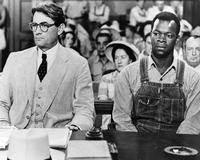Today, American novelist Harper Lee would have turned 94 years old. As a lover of novels in general, and To Kill a Mockingbird in particular, I jumped at the chance to write a celebratory blog about Ms. Lee’s work and the lasting impression it has had on me. But then I sat down to write such a blog and I hit a wall.
The longer this COVID-19 pandemic goes on, the harder it becomes for me to think about (let alone write about!) anything without first connecting it to this time that we’re in. I think about how much time I have to meditate now or how lonely it is to be quarantining alone. I think about how lucky I am to have a job that I love and a safe space to quarantine. I think about my friends with kids, balancing their needs, their kids’ needs, and all the other responsibilities that come with being a person in a world desperately trying to struggle forward. I think about the people whose experiences of this pandemic are so different than mine, who are forced to make hard decisions every day for themselves and for their loved ones.
And I find myself thinking about what stories we might tell when this time of quarantine is over. I wonder what we’ll remember, what we’ll tell our kids or our grandkids. I dream of art that helps us grapple with feelings and emotions that seem impossible to explore now, while we’re struggling. I imagine the stories we’ll tell on stages, in movies, and in the pages of novels. I hope they evoke for people the same awe, introspection, and resonance that To Kill a Mockingbird evokes in me.
To Kill a Mockingbird is a fictional novel, loosely based on the experiences and observations Harper Lee had as a child in Monroeville, Alabama. It’s a book about a child’s loss of innocence; the struggle to do what you believe is right even as your world says it’s wrong; and the ugliness of inequality, classism, and racism. It was published in 1960, five years after Rosa Parks refused to give up her seat on a segregated bus in Montgomery, Alabama, and three years before Martin Luther King Jr. gave his "I Have a Dream" speech in front of the Lincoln Memorial. While not without controversy, particularly when viewed through a contemporary lens, To Kill a Mockingbird evokes for many a specific time in our country’s history that we must never forget.
As I look forward to the days when we can all lay in the sun in a park with our loved ones again, I find comfort in knowing that novels will help us remember what this time was like. If you're interested in exploring other classic novels that help us remember, here are a few more that represent a specific time, place, or struggle that I’m trying not to forget:
- All Quiet on the Western Front by Erich Maria Remarque
- Beloved by Toni Morrison
- The Bell Jar by Sylvia Plath
- The Crucible by Arthur Miller
- The Diary of a Young Girl by Anne Frank
- The Grapes of Wrath by John Steinbeck
- Heart of Darkness by Joseph Conrad
- The Jungle by Upton Sinclair
- Lord of the Flies by William Golding
- Native Son by Richard Wright
- The Red Badge of Courage by Stephen Crane
- The Scarlet Letter by Nathaniel Hawthorne
- The Things They Carried by Tim O'Brien
- Things Fall Apart by Chinua Achebe
What books am I missing? Share your favorites with me in the comments!
Have a question for Free Library staff? Please submit it to our Ask a Librarian page and receive a response within two business days.



